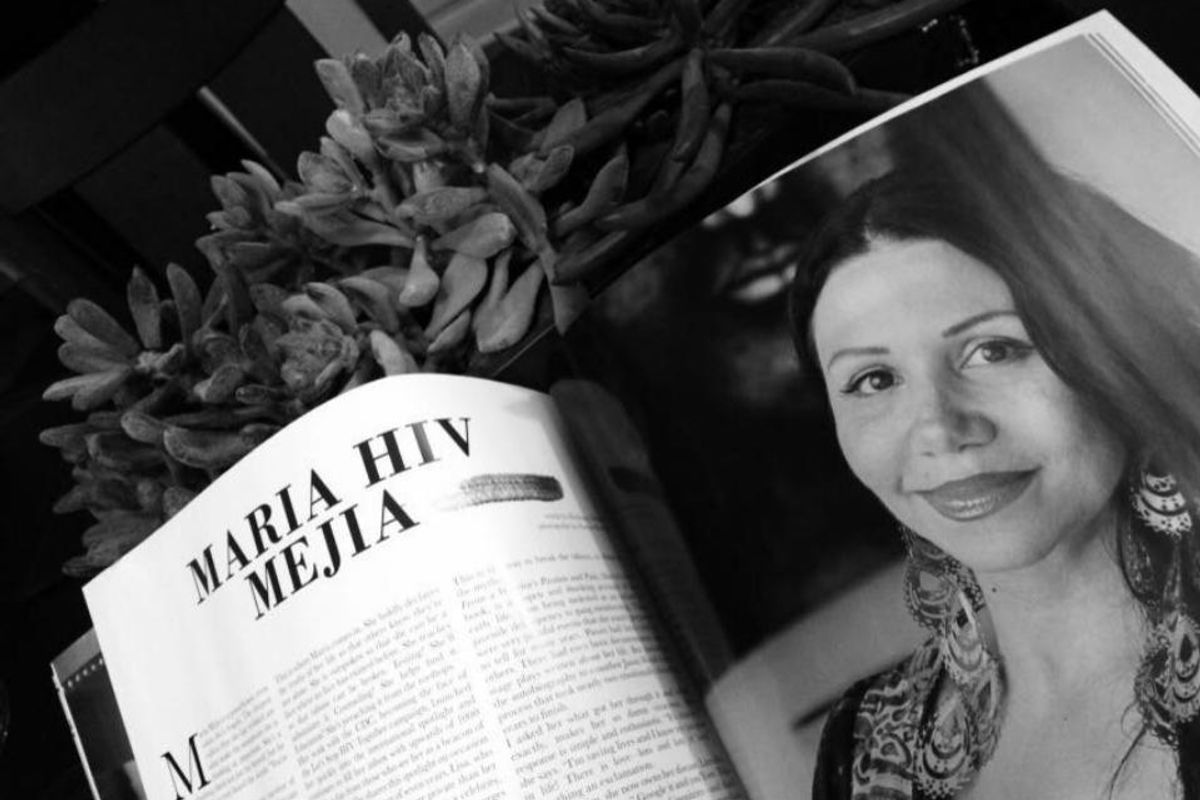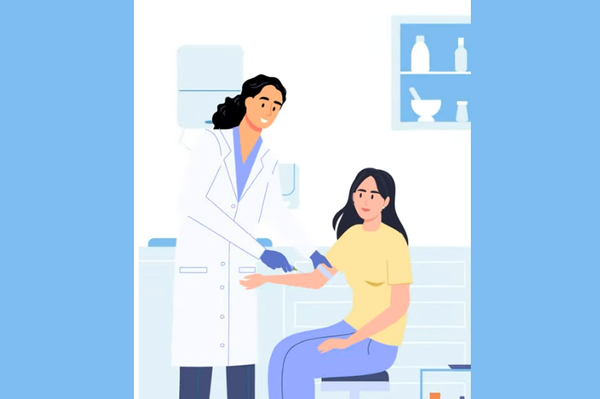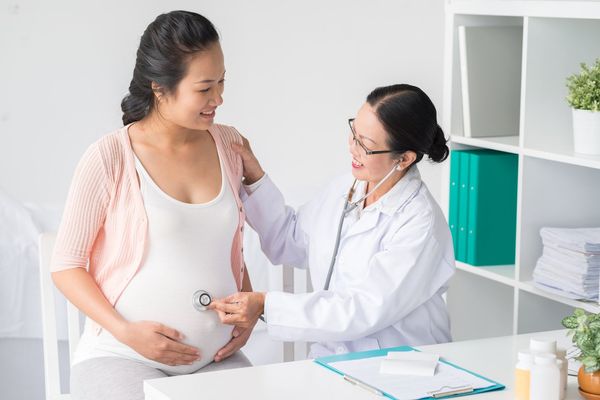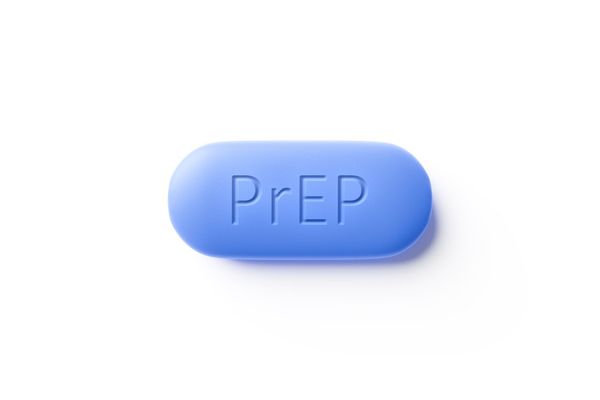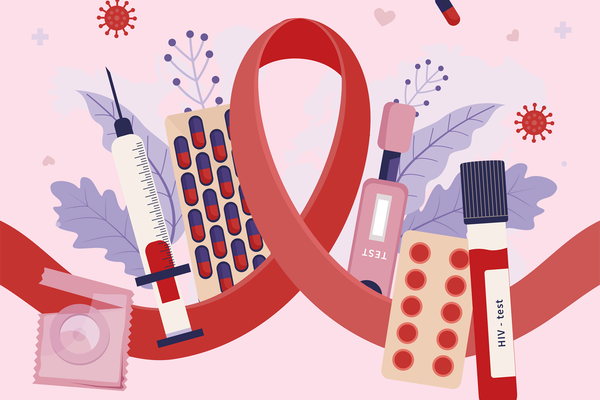As told to Aviva Patz
September 18, 2022, is National HIV/AIDS and Aging Awareness Day.
It’s hard to believe that HIV could be a blessing, but for me, it was.
That’s because it gave me a chance to change my life.
After having been sexually abused by my uncle and emotionally abused by my father, I ran away from home at 13 only to be placed in the foster care system, where I was sexually abused again. By the time I was diagnosed with HIV at age 18 in 1991, I was living on the streets of Miami, dating the leader of a violent street gang and committing crimes myself, including armed robbery. I was full of anger and self-hatred.
Ironically, my HIV diagnosis came just when I was trying to turn my life around. I’d left the gang when I was 17 and moved back in with my mom, even though she made it clear that she didn’t want me there because she thought I was a troublemaker. Eventually, I told her I wanted to go to Job Corps, a vocational school for teens in trouble. I thought it was my opportunity to prove that I was worthy.
I wasn’t sick at all, but at Job Corps, they did routine blood work on new students to test for pregnancy and other conditions. On TV, you only saw gay white men from San Francisco with HIV. Never in my life did I think I would be told I was HIV positive.
The doctor who diagnosed me had no compassion. He just blurted out, “You have AIDS.” It was horrible. He didn’t give me a pamphlet or anything. But I didn’t cry. I just put my head down and thought, I’m never going to get married, never going to have children. Back then, HIV was a death sentence.
I come from a good family, a conservative Catholic family from Colombia. And, the Latinx community is like, “Don’t ask, don’t tell,” so my mom sat me down and said, “We can’t tell anyone in the family or friends. They’re ignorant. They’ll discriminate.” So I felt I had to keep my HIV status a secret.
At the time, the only treatment available was a cancer medication called AZT. They told me in the clinic that I could get on AZT, but I would have to sign a waiver acknowledging that it could damage my internal organs. I said, “Nope, I’m not taking that.”
After years without treatment, my T cells went down to 39 — the normal range is 500 to 1,400 per cubic millimeter of blood. I knew I could continue dying or begin medical treatment.
I chose to live.
At Jackson Memorial Hospital in Miami, where I was treated, I started going to educational classes in special immunology. I went two hours a day, and I learned so much. I was very talkative in these classes, and every time I spoke, people listened. The administrators approached me and asked if I’d like to be a peer educator. They said, “You helped so many people already.”
I got trained by the health department to counsel minorities — not only Latinx people but also the African American and LGBTQ communities and immigrants.

I never intended to become an activist, but that’s where I landed. These days, I help pass legislation for the HIV community. And I’m a global ambassador, community advisory board member and A Girl Like Me blogger for The Well Project, a nonprofit organization giving information, support and tools to women and girls with HIV/AIDS.
I’ve founded online support groups with 40,000 members, in English and Spanish. We have people from tribes in Africa all the way to Patagonia in South America. I call myself Maria HIV with “HIV” as my middle name. I don’t care — that’s how I attract people.
I lead by example, and I fight stigma by humanizing the condition. I’m a long-term survivor who is not only surviving but thriving. I’m one of the most visible faces of HIV in the world, and I show that people with HIV can love, get married and have children. I give hope to the hopeless. And, I don’t regret that I got HIV because, ironically, it saved my life.
It’s helped me grow in so many ways: I’ve learned to love myself and take care of myself and to be more compassionate and spiritual. And, best of all, it’s made my purpose clear to me. I’ve met so many people who have been through a lot, and together we’ve saved so many lives. In helping others, I’ve found I also help myself.
- HIV/AIDS ›
- Medications That Treat and Prevent HIV ›
- HIV, Aging and Whole Person Care ›
- Clinically Speaking: Questions to Ask Your Healthcare Provider About Your HIV Treatment ›
- Your Words Can Make a Difference in the Fight Against HIV Stigma ›
- HIV/AIDS Support Group Finder - HealthyWomen ›
- FAQs About HIV and Pregnancy - HealthyWomen ›
- Preguntas frecuentes sobre el VIH y el embarazo - HealthyWomen ›

